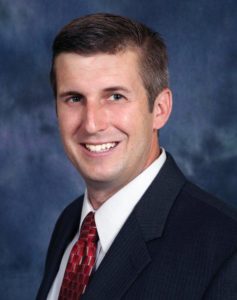By James Maroney
State Sen., D-14

James Maroney
Many times we feel that our voice doesn’t matter. We see things happening in DC or Hartford, or even in our hometown, and feel that we would have done them differently. Often, we wonder why something happened and whether we could have changed it.
For those of us who are up in Hartford, we may forget that it took us time to learn how the process works. As we get ready to embark on a new legislative session, I want to use this opportunity to give you a brief overview of the process and show you how to make your voice heard.
The session officially starts on Feb. 7 and ends at midnight on May 8. Every law starts in a committee of cognizance, or understanding. This year laws can be proposed in two ways: an individual legislator can only submit bills that make changes to the budget, while committees can vote to draft bills. The next step is that the submitted bill will get a public hearing. At a public hearing, you have the opportunity to have your voice heard.
During the pandemic, we added the opportunity to testify by Zoom. We found that it gave more people access to testifying, so we kept that opportunity. To find out about bills that are getting a public testimony, you can visit cga.ct.gov. You can visit committees of interest to you and see the schedule of hearings and the agenda for bills that will be heard that day.
In addition to testifying in person or via Zoom, you can also email testimony. Each committee has slightly different rules, so you need to visit the committee page to find out how to sign up for testimony or to submit testimony via email. Most committees allow people three minutes to testify on a bill that is on the agenda, and then legislators can ask questions.
I have been attending conferences around the country over the past year to learn from other legislators and work on legislation. In Connecticut, each representative represents 25,000 residents and each senator represents 100,000 residents. In most other states, each representative and senator represents significantly more residents, which means as elected officials in Connecticut we have more opportunity to interact directly with our constituents.
Over the course of the year, I run numerous coffee and conversation events, telephone town halls, and evening meetings, recognizing that not everyone can meet at the same time. During these interactions I often get ideas or suggestions for legislation.
One such idea came from a coffee and conversation when a constituent asked Rep. Frank Smith and me what the state was doing to help us recruit more police officers. From that question, I had the idea to create a loan forgiveness program for police officers’ student loans and was able to work with my colleagues to get that program created and funded.
In World War II, the German enigma code was cracked at Bletchley Park by incorporating puzzlers, gamers and other diverse voices. The key was bringing together diverse perspectives and voices. The same goes for legislation. The best legislation is crafted when we incorporate diverse voices. I encourage you to reach out if you have an idea and to make your voice heard through testifying on issues that are important to you.